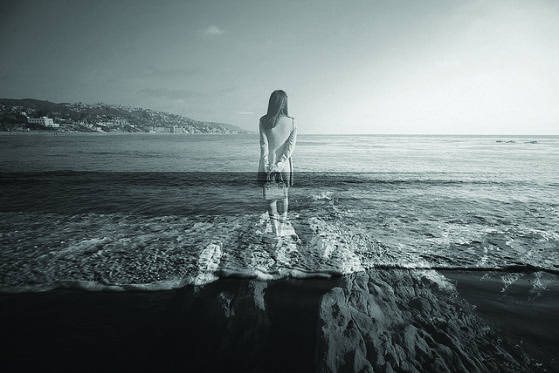
Summer is supposed to be a time when we renew our celebration of life. When I lived in Montreal, after enduring six long months of dark, depressing winter, the city would come alive at the first bloom of spring. The colors of summer would renew our optimism, our sense of the possible. Above all else, those summer colors made me move to Los Angeles. For me, the sun never gets old.
The sun brings me back to my childhood in Casablanca, when the term “Jewish ghetto” was actually a positive — it was the neighborhood where Jews huddled around community, friendship and the ritual rhythms of an ancient faith. There wasn’t much time for loneliness or alienation. Poverty was common — some families lived in one room — but depression wasn’t.
It was only when we moved to Montreal that I was introduced to the idea of depression. But that depression was easy to blame on the long winters — on the darkness that fell at 4 in the afternoon and the oppression you felt from violent winter storms. Moving from a Mediterranean culture, where life happened in courtyards, streets and beaches, to a Nordic culture, where for six months you hibernated from one indoor shelter to the next, is the definition of culture shock. This was especially true for those, like my parents, who were not taken with winter sports.
It’s a lot harder to explain depression without the obvious external cues of a depressing winter. This is the depression we cannot see — the depression we couldn’t see on the funny face of comedian Robin Williams, the perky face of fashion designer Kate Spade, or the inquisitive face of culinary globetrotter Anthony Bourdain, all of whom committed suicide. They carried their winter with them. Sunny day or not, inside their souls they craved shelter from a forbidding condition that left them shivering.
How can I reconcile this fanatical devotion to preserving life with the extreme act of deliberately taking one’s own life? I can’t. I won’t even try.
I don’t have the courage to judge those who end up committing suicide. My tradition teaches me to worship life. Everything about Judaism seems to come back to the core ideal of honoring life, not just our own but the life of a stranger, of each of God’s children.
How can I reconcile this fanatical devotion to preserving life with the extreme act of deliberately taking one’s own life? I can’t. I won’t even try.
I’ll just reflect on the pain that hides in so many people’s hearts. For every person who decides the pain is unbearable and they must leave this world, there are probably many more who learn to live in a kind of funk, not depressed enough to want to die, but not happy enough to enjoy life.
I worry about those people, too, the people on the border between depression and joy, between unbearable pain and human bliss.
We know the suicide rate across the country has risen sharply in recent years. This has become a national tragedy. There’s a lot we can and must do to fight this growing epidemic. But as a community, we can’t stop at suicide prevention. For those who are not clinically depressed, all too often the disease is plain old loneliness.
For every person who decides the pain is unbearable and they must leave this world, there are probably many more who learn to live in a kind of funk, not depressed enough to want to die, but not happy enough to enjoy life.
And if there’s one thing a community should be good at, it is fighting loneliness. Nurturing human interaction should be the core strength of community. Unfortunately, the pain of loneliness is often invisible. Loneliness is not a “special need” that lights up on our communal radars.
In her column this week, our food editor, Yamit Behar Wood, meditates on Anthony Bourdain’s suicide, suggesting that his 20 years of globetrotting took a special toll. It took him away from the intimate womb of the restaurant kitchen, which was his true home, his true family. It unmoored him. It made him lonely.
I have no idea if spending more time with his kitchen “family” would have made a difference. I do know that we are human creatures meant to interact, meant to be nourished by deep and meaningful relationships. And I know that no amount of social interaction on Twitter and Instagram can substitute for the real thing.
I’m not dreaming of a perfect world; I’m dreaming of a world where happiness and human interaction are always on the table, always there as an option to help alleviate the heavy burdens of life.
We can’t wait for the drama of suicides to remind us that life is worth living; that community can provide shelter against the storms that inevitably will come, whether in dark winters or happy summers.






















 More news and opinions than at a Shabbat dinner, right in your inbox.
More news and opinions than at a Shabbat dinner, right in your inbox.